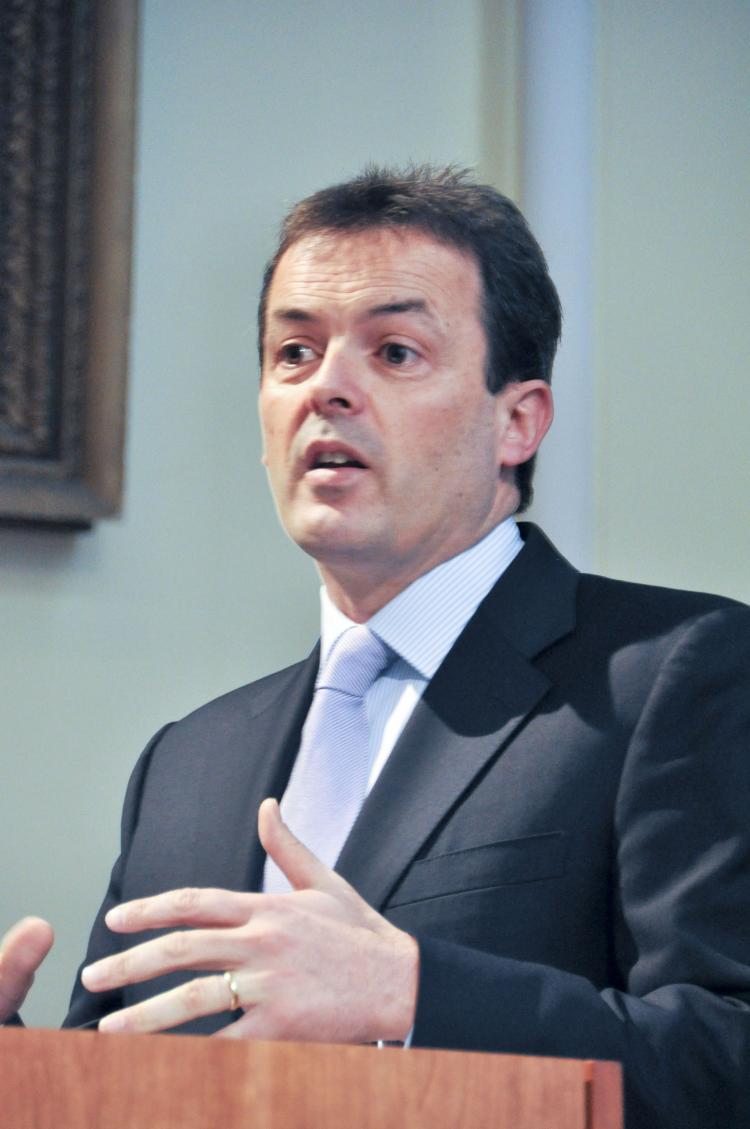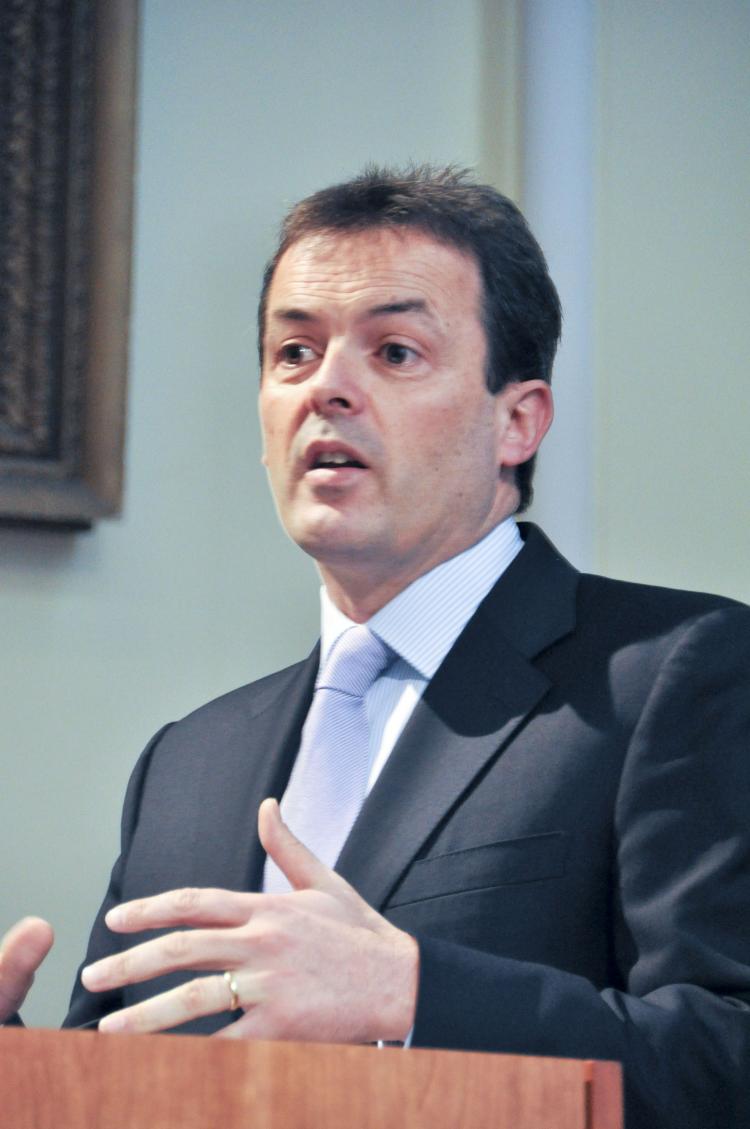New Government Told to Remove Barriers that Stifle Growth
Day one of the National Employment Week at the Royal College of Physicians in Dublin was told by Senator Fergal Quinn that the new government must remove the barriers that stifle growth in the Irish economy.

Paul Rellis, Managing Director of Microsoft Ireland, speaking at National Employment week Martin Murphy/The Epoch Times
|Updated:



